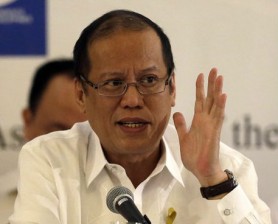After failing to be sponsored on the floor of the House of Representatives for three days, the condition of the freedom of information (FOI) bill is now “terminal” and it would need a “major miracle” from President Aquino to revive it, according to the bill’s coauthor, Ifugao Rep. Teddy Baguilat Jr.
Baguilat said he was not pronouncing the FOI bill dead at this point because technically, the measure could, by a very slim chance, reach final passage in the six remaining session days.
He said he would want to prepare for another battle for the bill in the next congress, should it fail to hurdle the current 15th Congress.
“It’s realistic to say it’s in the terminal stage. In comatose [condition] since last week. But I would not pronounce it dead. That’s not a wise thing to do for a legislator,” he said.
Bill’s savior
He believes Mr. Aquino could be the bill’s savior. “Only a major miracle such as a presidential certification can save it now,” he said.
The bill’s plenary sponsor, Eastern Samar Rep. Ben Evardone, said the bill would be unlikely to pass if it is not yet approved on second reading by next Wednesday.
Evardone, the public information committee chair, thinks the three session days next week might just be enough to finish with debates on the measure if no lawmaker would filibuster.
The FOI bill was not sponsored on the floor during the House’s three session days this week. A sponsorship speech formally introducing the measure to the plenary is necessary before debates and amendments can commence in preparation for a second reading vote.
Absence of a quorum
The bill was not in the order of business on Monday, and was only included in the House agenda on Tuesday. But the Tuesday session was suspended without the FOI sponsorship speech after another lawmaker threatened to question the quorum because he did not want the new law creating the Davao Occidental province to be read into the record.
Because of this, and the apparent absence of a quorum, House leaders decided to just suspend the session.
It was the same on Wednesday. Saddled with a nearly empty session hall, the House adjourned the session with the FOI bill not being tackled.
Baguilat said it would be “simplistic” to blame the FOI bill’s lack of progress to the quorum problem alone.
“In our experience, quorums and longer session hours with few procedural blocks can be mustered through will,” he said.
Still, Baguilat said he still wanted to pursue FOI debates on the floor in the remaining session days as the discussions would be valuable if the bill does not pass and have to be taken up again in the 16th congress.
“Sponsorship and interpellations would clarify unfounded fears of our colleagues on the FOI,” he said.
“The anticipated support for FOI from the representatives who would listen to the debates could be our springboard for another try in the 16th congress,” he added.
For a bill that no lawmaker has actively or openly opposed, and which Malacañang insists continues to have the President’s support, the FOI measure has seemingly met with roadblocks at every turn.
It was not immediately passed by the public information committee because, according to its proponents, Evardone scheduled very few hearings on it. It was only approved by the committee toward the end of 2012. But with the House preoccupied with the reproductive health bill, the FOI measure was not immediately sponsored on the floor.
The FOI bill seeks to make government transactions and data open and accessible to the public in order to promote good governance and accountability.
Full public disclosure
It would make full public disclosure of transactions involving public interest, subject to certain limitations, official policy of government.
The bill’s militant proponents have protested some of the exceptions to full public disclosure written into the bill, including exceptions that Malacañang has proposed. They said some of the exceptions would actually dilute the bill’s essence by making it harder to obtain data related to executive functions and military and police operations.
